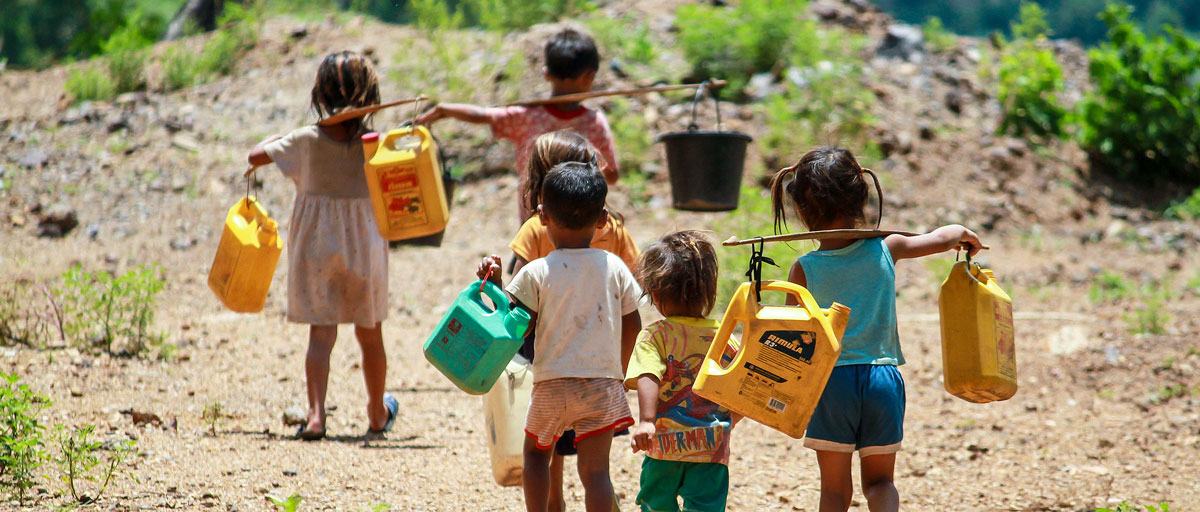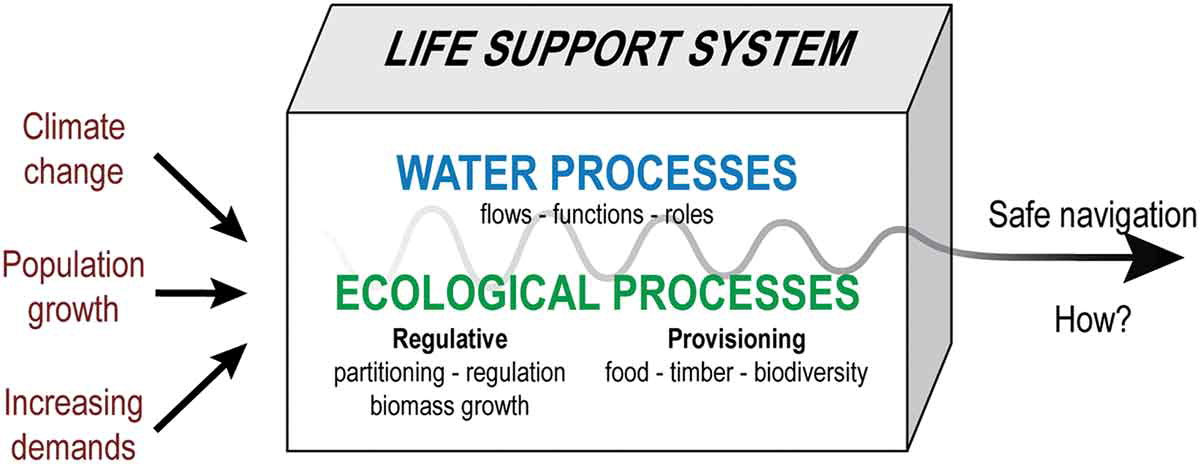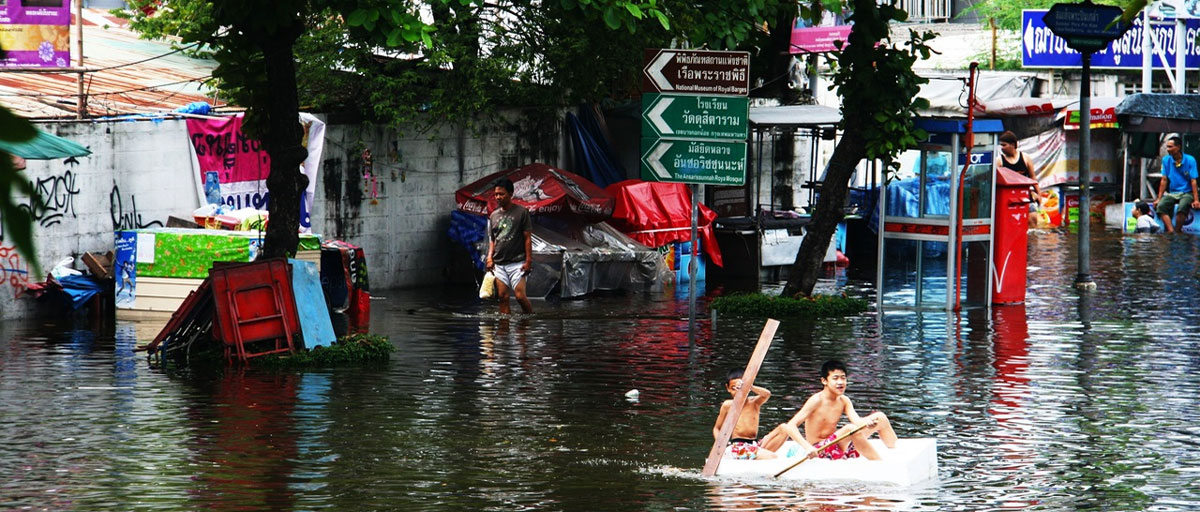Bildtext får vara max två rader text. Hela texten ska högerjusteras om den bara ska innehålla fotobyline! Photo: B. Christensen/Azote
WATER RESILIENCE
How to manage the world’s most important life-support system

In a an article published in International Journal of Water Resources Development, centre researcher Malin Falkenmark argues for a systems approach where economic growth is not prioritised ahead of the sustainable stewardship of water and its many crucial functions. Photo: Asia Development Bank/Flickr
- A systems approach is needed, where economic growth is not prioritised ahead of the sustainable stewardship of water and its many crucial functions
- Humanity will remain at the mercy of water for the foreseeable decades
- Without better safeguarding, water-related problems can be catastrophic for many societies
Malin Falkenmark calls for a shift towards a water based biosphere stewardship. The alternative, she warns, could be catastrophic
AT THE MERCY OF RAIN: History has a tendency to repeat itself but lessons learned can help avoid the most painful of mistakes. The collapse of Mayan civilization 1000 years ago was brought on by an onset of drought. Through deforestation and soil erosion, humans caused so much imbalance to the water driven life support system that it brought about their own demise.
Sounds familiar?
Look after forested areas
In a an article published in International Journal of Water Resources Development, centre researcher Malin Falkenmark argues for a systems approach where economic growth is not prioritised ahead of the sustainable stewardship of water and its many crucial functions.
The only hope for eradicating poverty and hunger is through water resilient biosphere stewardship.
Malin Falkenmark
Falkenmark, a great authority on global hydrology, demonstrates how water is fundamental to our planet's life support system and why, looking ahead to the next 50 years, humanity will remain at the mercy of it.
In the next half century, we are faced with water and food demands for more than nine billion people. At the same time we are degrading water cycle-driven ecosystem processes because of the rapidly growing economy.
Maintaining connections in this cycle will require concerted efforts to maintain rainfall. That means looking after forested areas that secure moisture feedbacks. With this in mind, Falkenmark calls for a strong focus on landscape stewardship to preserve resilient hydro-ecological systems.
“The key is to shift from yesterday’s focus on how to reduce the environmental impacts of human activities towards what is required to support our societies by a safe land-water-ecosystem interaction”. Malin Falkenmark.

An expanded way to think about water as part of the life-supporting system. Click on illustration to access scientific study.
Hydro-social, hydro-climatic, hydro-ecological
Falkenmark calls for a shift in thinking, with a focus on hydro-social stress, hydro-climatic safe-guarding, and hydro-ecological management. By thinking in this interconnected way, we can seek sustainable ways to manage the world’s life support system with its dense interaction between water functions and ecosystems.
The alternative, Falkenmark warns, could be catastrophic.
“Water-related societal problems may build up step by step. Recent cases are the Somalian drought, the Cape Town water crisis, the Arab Spring and the Syrian conflict. In the end societies might even collapse.”
Falkenmark, M. 2020. Water resilience and human life support - global outlook for the next half century. International Journal of Water Resources Development, DOI: 10.1080/07900627.2019.1693983









